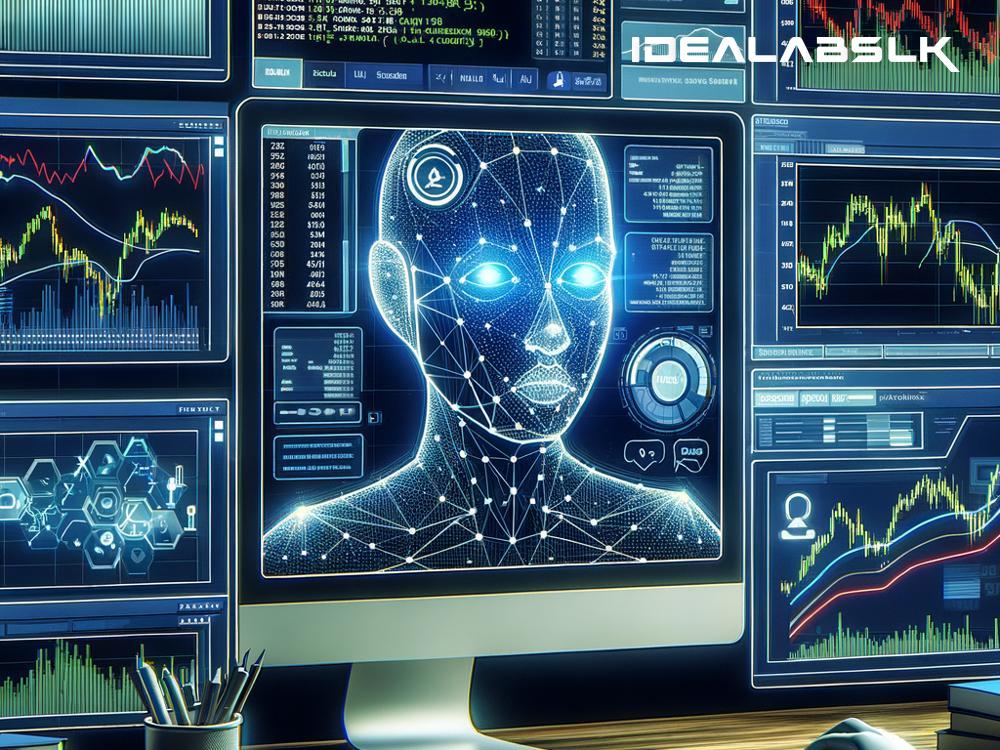Trading Algorithms: How AI is Transforming Stock Markets
The stock market can seem like a rollercoaster, full of ups and downs, thrilling to some and nauseating to others. But what if I told you that Artificial Intelligence (AI) and trading algorithms are smoothing out those rides, making them less erratic and, potentially, more profitable? This might sound like a chapter from a sci-fi novel, but it's happening in today's financial world. Let's dive into how AI and trading algorithms are revolutionizing the stock markets.
Understanding Trading Algorithms
First thing's first: What exactly are trading algorithms? In simple terms, they are computer programs designed to buy and sell stocks automatically, following a set of predefined rules. These rules could be as simple as "buy this stock when its price drops below a certain point," or as complex as analyzing millions of data points to make a prediction about future market trends.
The Role of AI in Trading
This is where AI enters the picture. Artificial Intelligence, especially in the form of machine learning, can process vast amounts of data at speeds and depths incomprehensible to human traders. It scans through years of market data, news, social media chatter, economic indicators, and even weather forecasts, looking for patterns that might influence stock prices.
The true power of AI in trading lies in its ability to learn and adapt. Unlike traditional algorithms, which follow the same instructions unless manually changed, AI-driven algorithms evolve. They learn from their successes and mistakes, refining their strategies over time. This capability to self-improve allows AI algorithms to stay relevant in the ever-changing market landscape.
How AI is Changing the Game
Enhanced Decision Making
AI takes the emotional bias out of trading decisions. Humans are emotional beings; we panic during a market downturn and get overly excited during a bull run. These emotions can lead to irrational decisions - selling low during a panic and buying high in a euphoria. AI, on the other hand, makes decisions based on data alone, leading to more rational and potentially profitable trading strategies.
Speed
In the stock market, timing can be everything. AI-driven algorithms can execute trades within fractions of a second, much faster than any human could. This speed advantage can make a significant difference in profit margins, especially in strategies that rely on exploiting small price differences that exist for only a short period.
Predictive Analysis
AI shines in its ability to predict future market movements. By analyzing historical data and identifying patterns, AI can forecast future price movements with a higher degree of accuracy than traditional methods. This predictive capability allows traders to act on insights that would be impossible to derive manually.
Risk Management
AI algorithms can also enhance risk management strategies. By continuously monitoring market conditions and the performance of individual assets, AI can adjust its trading strategies to minimize losses and protect gains. This dynamic approach to risk management can lead to more consistent long-term returns.
Challenges and Concerns
While the benefits of AI in stock trading are substantial, there are challenges and ethical concerns. The speed and efficiency of AI-driven trading can exacerbate market volatility under certain conditions. There's also the concern of creating an uneven playing field, where those with access to more advanced AI technologies have an unfair advantage over average investors.
Moreover, the increasing reliance on AI systems raises questions about market transparency and the potential for system errors or manipulations that could have widespread consequences.
The Future is Now
AI-driven trading algorithms are no longer a thing of the future; they are actively shaping the present landscape of the stock market. As technology evolves, we can expect these systems to become even more sophisticated, potentially making high-level financial analysis and trading strategies accessible to a broader range of investors.
However, alongside the excitement for this technological revolution, it’s important for regulatory bodies, market participants, and technology developers to address the challenges and concerns that come with such rapid innovation. The goal is to ensure that the evolution of trading algorithms benefits not just a select few but contributes to a fair, transparent, and efficient market for all investors.
In closing, the integration of AI into stock trading represents a seismic shift in how we understand and interact with financial markets. As we stand on the brink of this new era, the fusion of finance and technology promises to redefine the boundaries of possibility in trading, opening up a world of opportunities for those ready to embrace the change.

